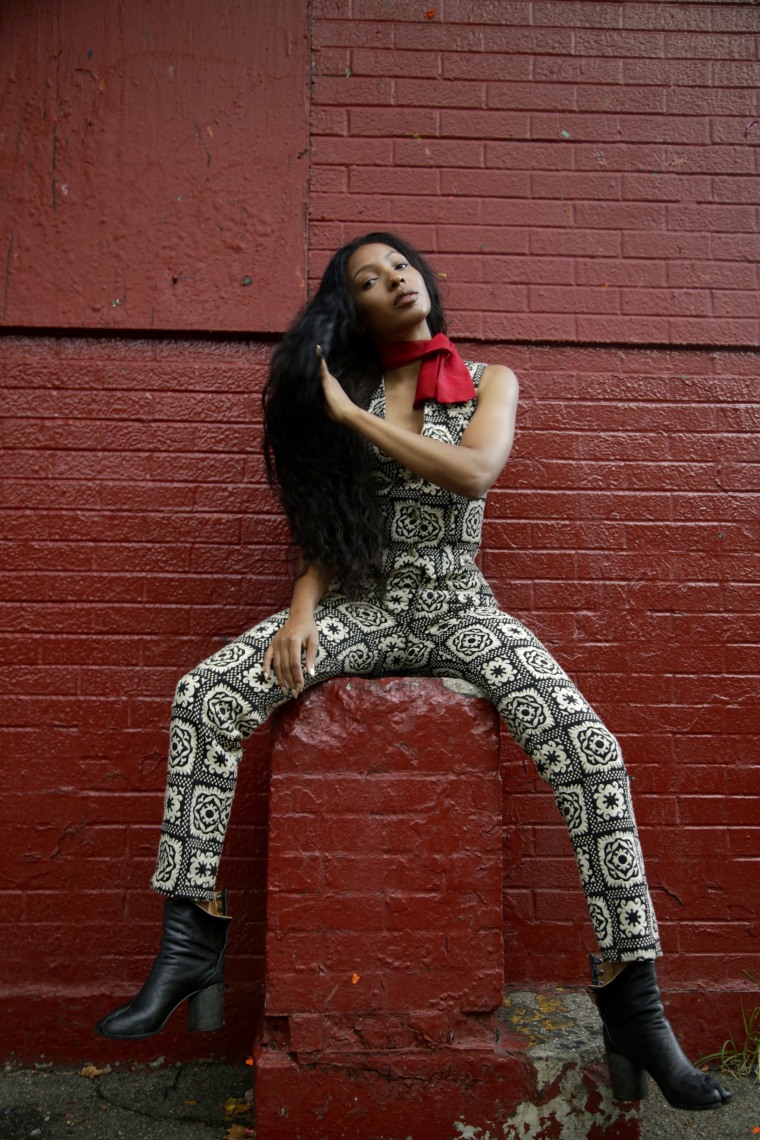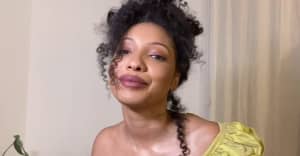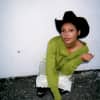 Rob McCurdy
Rob McCurdy
“I had a complete nervous breakdown,” said Diana Gordon, the 29-year-old singer/songwriter formerly known as “Wynter,” after a deep sigh. “I would get this pressure in my face. I’d get vertigo, the room would spin, and I would pass out.” As she told me this, Gordon was sitting with her legs tucked under her in an empty rehearsal studio in Brooklyn. With her hands placed on her red corduroy-covered thighs, she explained what led up to the 2015 meltdown: “Stress can do that to the body when you get to a certain age,” she said. “You start feeling like you’re getting older and your life is not where it’s supposed to be.”
There's a good chance you know Gordon best for the songs she’s made for others — Beyoncé, specifically; she wrote “Sorry,” “Don’t Hurt Yourself,” and “Daddy Lessons” on the pop giant’s newest full-length, LEMONADE. But long before that, as a little girl from Queens, Gordon foresaw a certain future for herself. The handwritten sign she kept above her childhood bed said it all: “A star sleeps here.”
Shortly after she was born, Gordon’s mother and her biological father had a devastating split up. Her dad left the family with no money, and her mother lashed out. “She went mental,” Gordon said. “Me and my brothers and sisters had to go through with the abuse that went with that.” She later remarried, and Gordon’s militant stepfather — and subsequently the whole family — became members of a radically conservative sect of the Pentecostal Church. “I grew up with a lot of fear from an early age,” she said, speaking softly. “I would be trembling if my mom would come near me.”
By 18, Gordon had left her home and moved into a tiny apartment in Queens with her two younger brothers. She got a job at a nightclub owned by a music manager named Don Pooh. While working the coat check, Gordon told Pooh that she could sing and passed him a demo. Pooh came back, gave her a different track, and told her to write a song to it. That song, “Gonna Breakthrough,” would become the sort-of title track on Mary J. Blige’s seventh studio album. The Breakthrough came out in 2005, when Gordon was 19 years old. She officially inked a deal with Atlantic Records the same year.
After signing to a major, Gordon didn't want to change her image and sound to fit in with the mid-aughts pop charts. The team, she said, had other ideas. “I had my first manager for 10 years and went by everything he said," she remembered. "It was, ‘Wear your hair like this, wear your makeup like that, wear your clothes like this.’ He didn’t give me a chance to find out who I was. I’d left my mom’s crazy-ass house and jumped into somebody else’s,” she said.
Gordon’s sublime 12-tone vocals, intersectional range, and knack for writing great love songs made it easy to market her as an R&B singer, but that label didn’t sit well with her. “It didn’t feel right,” she said. “So instead of letting me figure it out, they’re like, ‘Okay let’s try something else.’ I had no time to explore. I had gone from super sheltered to that,” she said.
“Black women, they always put us in a box. It’s like, ‘Y’all can’t do nothing else,’ because of the ways that we’ve been portrayed. We are the most cultured beings of all time.”
When executives heard the EDM and pop songs that Gordon wrote for other artists like Danity Kane and Flo-Rida, they thought she could make crossover hits by incorporating those sounds and aesthetics into her solo music. “I didn’t want [to do] that because my background is in the church,” she said. “No matter how I feel now about religion, my inner foundation is that. I’m not just going to be some girl who’s on stage taking it off.” But the executives won the battle, and in 2010, she debuted her first official solo single, “Dirty Talk,” a racy dance track with lewd lyrics. “The song I wrote to get signed was about peace and unity and friendship and love and about the real black struggle. I was like, I can’t be this girl.”
The song’s popularity led to worldwide shows, but it didn’t push her to megastar status — making the ethical trade-off feel even worse. “I was doing these performances and making money, but it got to the point where it felt so foreign,” she said. In 2011, a 26-year-old Gordon walked away from the record deal and show money with the intention of finding herself. But decades of trauma and feeling silenced began to take a physical toll, and she suffered a breakdown in 2015. “I couldn’t sleep because I was afraid that I would die,” she said. “I had lots of stress and felt jealous of people who were successful around me. I was working hard, but it was not fruitful. I didn’t think people were really seeing me.”
Last year, Gordon went took a life-saving trip to Nicaragua with her best friend Princess Nokia, an underground rapper from New York. Two months after her initial meltdown, Gordon was able to let go of the pain, she said. Since then she’s been committed to finding her own interests and expressing them. “Black women, they always put us in a box. It’s like, ‘Y’all can’t do nothing else,’ because of the ways that we’ve been portrayed in the media. We are the most cultured beings of all time,” she said.
For the first time, Gordon, who was named after Diana Ross, is going by her birth name. “I feel stronger in showing people my flaws,” she explained. “I don’t mind telling the good and the bad anymore. I don’t mind sharing because that’s what’s going to help people,” she said. Although she has impressive writing credits, she doesn’t limit herself. “I’m not a songwriter,” Gordon told me. She’s a singer first, she said, and she recently wrote 20 new songs. For the first time, none of them have been about love, unless you count self-love. Though she’s now signed with cult indie label 4AD, she’s not sure she wants to put out a full-length album. She’s "anti-formula" and needs a fresh start.
After the studio, Gordon took me to see her rehearse some new music with her band next door. The room smelled like palo santo and white string lights were draped across the drum kit and the floor. The four of them meet six days a week to practice Gordon’s new material, she said. That day, she flexed her stellar cadences on “The Legend Of,” her forthright new song that debuted last week on this website. It’s an ode to her truest self and the legacy of her perseverance. “When you’ve fought death and you fight it all your life — you have the answer to it,” she said, radiant, in-command, and ready for the universe’s gifts.
Listen to Diana Gordon's highly personal new single, “The Legend Of":


